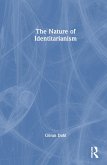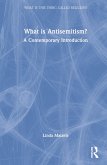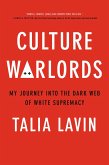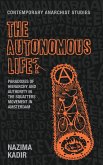Universalism shows two faces to the world: an emancipatory face looking to the inclusion of the other and a repressive face that sees in the other a failure to pass some fundamental test of humanity. Universalism can be used to demand that we treat all persons as human beings regardless of particular differences, but it can also be used to represent whole categories of people as inhuman, not yet human or enemies of humanity. Jewish experience of universalism offers an equivocal test case. Universalism has stimulated the struggle for Jewish emancipation but also helped develop the idea that there is something peculiarly harmful to humanity about Jews and that there is a 'Jewish question' that needs to be 'solved'. This original and stimulating book traces struggles within the Enlightenment, Marxism, critical theory and the contemporary left to rescue universalism from its repressive, antisemitic undertones.
Hinweis: Dieser Artikel kann nur an eine deutsche Lieferadresse ausgeliefert werden.
Hinweis: Dieser Artikel kann nur an eine deutsche Lieferadresse ausgeliefert werden.









